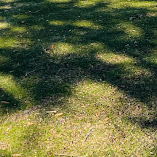What’s a guy your age doing buying a bike like that?
No, I haven’t lost my mind. But it is strange for a man pressing 80 to buy a bicycle. I don’t owe you an explanation, but I will give you one anyway.
Bicycling is one of my favorite outdoor activities. I used to enjoy walking, too. But “balance issues” began to affect my walking a several years ago, and now I need a cane or trekking pole to walk safely—especially in open spaces like the outdoors.
But put me on a bike, and it’s as if nothing’s wrong. My bicycle balance seems to be what it always has been, and I ride with hardly a thought about falling.
But another issue increasingly complicated my relationship with my beloved Specialized Crosstrail, size XXL. A year ago I began to have difficultly swinging my leg over the seat the get on and off the bike. And when I pushed it out of the garage this past March, I could not make that move at all. I felt too unsteady, and feared falling to the pavement with the bike on top of me. Was it because of the new left knee I got just about a year ago? Or was it…age?
I knew I could ride my bike, if I could get on it. Would I have to give up forever the freedom and joy of riding, a favorite activity that connected me, almost magically, to my youth? I began to search for alternatives, and that’s when I discovered step-through bikes.
Well, not really, There’s always been step-through bikes, and I’d always known about them, but they were called girls’ bikes. In another sign of society’s changing gender nomenclature, what had been binary (boys’ bikes vs. girls’ bikes) was now something in between, both and neither, something new that had actually been around all the time but we just didn’t know it. Who said a small difference in bicycle anatomy had to single a simple either/or, one-or-the-other bicycle gender?
I began to look for XXL-sized step-though bikes, and although they are out there somewhere (I think), I wanted to stay in a reasonable price range. So, the friendly staff at Joy Machines Bike Shop on Cleveland’s near west side helped me find the Jamis Citizen 2 pictured above, and modify it to make it work for me: longer saddle post (to which I attached what is definitely not a “comfort” seat), and a rack on the back where I carry a folding trekking pole in case I get stranded and have to walk a distance.
When I first got my Specialized bike, I put toe-clip pedals on it. A few years later I replaced them with regular pedals, fearful I could no longer easily make the quick motion needed to get out of them in an emergency. I didn’t like the change, but I knew I had to get used to it, and I have.
Now I’ve made another change. It’s what we do as we age if we want to keep living the best lives we can live. We must learn to adapt to the changes forced upon us by the years if we want to continue to live fully in the present.
My new bike is a metaphor for much of what is happening in my life these days. And it’s also a heck of a lot of fun.






